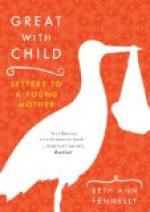The best pudding in the world is a loaf of bread, (What!—you will say—bread again?) three or four or five days old, boiled, or rather steamed, in milk. All kinds of bread are excellent for this purpose, but wheat and Indian are the best. They are excellent even without milk—that is, simply steamed.
Puddings made of the flour of wheat, rye, buckwheat, &c., are less wholesome than those which have been already mentioned. And all sorts of puddings are less wholesome, when eaten as hot as our unreasonable fashions require, than when their temperature is quite below that of our bodies. I would not have them so cold as to chill us, for this would be to go to the other, though less dangerous extreme; but they ought to be cool. Too much heat is an unnatural stimulus, likely to leave more or less debility behind it. In addition to this, those who eat hot food are more exposed to take cold, in consequence of it.
With none of these puddings ought we to mix any fruits, green or dried—not even raisins. Some of the more important properties of nearly every kind of fruit or berry are lost by boiling, unless we eat the water in which they are boiled, and save the vapor which would otherwise escape. I am not in favor of boiled fruit generally, especially if boiled in puddings.
Puddings, like most other kinds of food—even bread—may be slightly salted: not that this is indispensable, but because the balance of human testimony is in its favor. The argument that we evidently need salt because the other animals require it, is without much weight. The other animals do not generally require or use it.[Footnote: Some considerable savage nations use no salt, and a few have a strong aversion to it.] The cases so often triumphantly mentioned, where animals appear to thrive better from the use of it, are only exceptions to the general rule, nor are they very numerous in comparison with the whole race of animals. Still I have no objections to its moderate use. It may be useful in preventing worms; though there are doubts even of that. In large quantities, it is unquestionably hurtful.
But neither fruits nor berries—permit me to repeat the sentiment—no, nor any such thing as cinnamon or spices, nor even sugar or molasses in any considerable quantity, should go into the composition of any sort of pudding. If the puddings are not sweet enough without, it is better to add a little sugar or molasses on your plate. Nor should sauces, or cream, or butter, or suet be used in or upon them; though of all these substances, cream is least injurious. Nutmegs, grated cheese, &c., are unnecessary and hurtful. Cheese should never be eaten, in any way.
There is one thing, however, which may be eaten in moderate quantity with all sorts of puddings and with bread; I mean milk. I say eaten with, for it is better never to put these substances, nor indeed any other, into the milk. The bread, pudding, &c., should be eaten by itself, and the milk by itself, also. In this way we shall not be liable to cheat the teeth out of what is justly their due, and then make the deranged stomach and general system pay for it.




